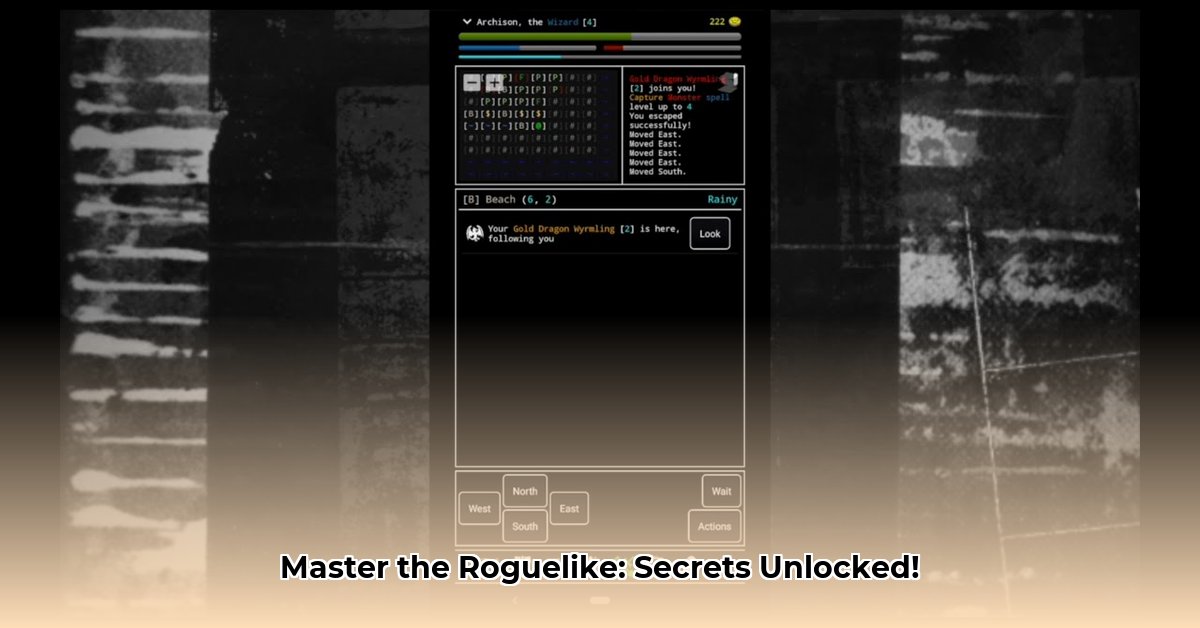
The indie game development scene is a vibrant ecosystem, often showcasing surprising success stories. The Random Adventure Roguelike series, developed solo by Archison, stands out as a compelling case study. This text-based adventure game has cultivated a dedicated following, proving that a unique concept, coupled with smart community engagement, can lead to significant success, even without a large budget or team. This article analyzes the series’ journey, exploring its core mechanics, development process, monetization strategies, and the challenges faced by its solo creator. We'll identify key takeaways for aspiring indie developers, emphasizing the importance of iterative design, community building, and sustainable monetization.
Gameplay and Core Mechanics: A Text-Based Roguelike Experience
The Random Adventure Roguelike series presents a classic roguelike experience: permadeath (with a "soft" permadeath option in the first game), procedurally generated worlds, and a challenging difficulty curve. Players explore mysterious islands, gather resources, battle creatures, and strive for survival – all driven by text-based interactions. Imagine a choose-your-own-adventure novel blended with the harsh realities of hardcore roguelike gameplay. This unique text-based approach is both a creative strength and a potential limitation; while fostering rich imagination, it also limits visual appeal. The sequel expanded upon the original, adding content and significantly improving community features, a key factor in the series' success.
Development Process: A Solo Developer's Journey
Archison's solo development journey exemplifies the typical rollercoaster of indie game creation. He embraced iterative design, actively incorporating player feedback into each update. This involved managing design, coding, testing, marketing, and community management concurrently—a considerable feat. This direct engagement with his community was crucial; every suggestion, bug report, and piece of feedback directly shaped the game. The success of this approach showcases the significant value of community involvement, especially for solo developers.
Community Engagement: Building a Loyal Player Base
The Random Adventure Roguelike series possesses an exceptionally active and supportive community. Archison fostered this by actively engaging with players, building thriving online spaces like subreddits and Discord servers. Players shared strategies, provided support, and reported bugs; the developer responded promptly, fostering trust and a sense of ownership. This strong community wasn't just an outcome; it was integral to the game's evolution and success. This highlights the critical role of cultivating a supportive and interactive community. How many other games benefit from such a loyal and actively participating player base?
Monetization and Sustainability: A Free-to-Play Model
The Random Adventure Roguelike games utilize a free-to-play model, a bold choice that presents significant sustainability challenges. Currently, Archison relies primarily on community donations and word-of-mouth referrals. This unconventional approach fosters a strong relationship with players, however, it presents risks for long-term financial stability. Exploring options like Patreon, cosmetic microtransactions, or paid expansion packs could provide more sustainable revenue streams while preserving the game's integrity and core values. Finding the right balance is crucial for the series' future.
Challenges and Limitations: Addressing the Hurdles
The text-based format, while contributing to the game's unique appeal, also presents challenges. It might limit its appeal to a broader audience accustomed to visually rich experiences. Additionally, the various responsibilities of solo development are significant, placing a substantial burden on the developer. The risk assessment matrix below highlights some key challenges:
| Risk Factor | Likelihood | Impact | Mitigation Strategy |
|---|---|---|---|
| Developer Burnout | High | Very High | Scheduled breaks, outsourcing (where feasible), community support for testing |
| Limited Market Reach | Medium | Medium | Targeted marketing, collaborations, content creation (e.g., playthroughs) |
| Unsustainable Monetization | High | Medium | Patreon, digital merchandise, grants |
| Community Disengagement | Medium | Medium | Regular communication, community events |
| Technical Debt | Medium | High | Code reviews, robust testing, refactoring |
Conclusion: Lessons Learned and Future Prospects
The Random Adventure Roguelike series offers valuable lessons. It demonstrates the power of iterative development driven by community feedback, the importance of community engagement, and the need for a sustainable monetization model. The journey showcases the challenges and rewards of solo game development. While the future of the series remains unwritten, its strong foundation, built upon a loyal community and a unique gameplay experience, positions it for continued growth. The series serves as a powerful example for aspiring indie developers.
⭐⭐⭐⭐☆ (4.8)
Download via Link 1
Download via Link 2
Last updated: Saturday, May 10, 2025